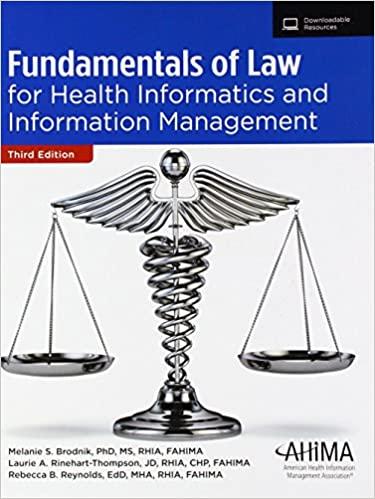Question
In Elsley v. J.G. Collins Ins. Agencies, ( https://www.canlii.org/en/ca/scc/doc/1978/1978canlii7/1978canlii7.html ) the Supreme Court of Canda has said that a reasonable - and therefore lawful -
In Elsley v. J.G. Collins Ins. Agencies, (https://www.canlii.org/en/ca/scc/doc/1978/1978canlii7/1978canlii7.html) the Supreme Court of Canda has said that a "reasonable" - and therefore lawful - restrictive convent is one that satisfies the following conditions: 1. The convent protects a real "proprietary interest' worthy of protection, such as trade secrets, confidential business information, or key business connections and customer lists, and is not simply an attempt to restrict healthy competition; 2. The covenant is reasonable as to geographical and temporal (time) scope, considering the specific type of work and the interests involved; 3. The covenant is reasonably necessary to protect the legitimate interests of the (former) employer, and no alternative measure is less restrictive on the former employee could protect the employer's interests; and 4. The covenant is unambiguous, such that it's cope is clear and understandable. However, the Ontario government introduced Bill 27, Working for Workers Act, 2021, which received royal assent on December 2, 2021. The bill contains a broad range of amendments to the Employment Standards Act, 2000 (ESA), including non-competition provisions. Ontario is the first province in Canada to enact legislation restricting the use of non-competition agreements.
The amendments enacted by Bill 27 prohibit employers from entering into employment contracts or other agreements with an employee that include or consist entirely of non-compete provisions. A non-compete agreement is defined as follows:
[An] agreement, or any part of an agreement, between an employer and an employee that prohibits the employee from engaging in any business, work, occupation, profession, project or other activity that is in competition with the employer's business after the employment relationship between the employee and the employer ends.
Bill 27 allows for the use of non-competes in the context of a business acquisition and for a defined class of "executives." Specifically, the use of non-competes will be statutorily permissible only as follows:
- Acquisitions:
- There is a sale (including a lease) of a business or a part of a business.
- As part of the sale, the purchaser and seller enter into an agreement that prohibits the seller from engaging in any business, work, occupation, profession, project or other activity that is in competition with the purchaser's business after the sale.
- Immediately following the sale, the seller becomes an employee of the purchaser.
- Executive Exemption:
- Any person who holds the office of chief executive officer, president, chief administrative officer, chief operating officer, chief financial officer, chief information officer, chief legal officer, chief human resources officer or chief corporate development officer, or holds any other chief executive position.
It is also important to note that amendments to the ESA introduced by Bill 27 do not prohibit or limit the use of other restrictive covenants such as non-disclosure, non-solicitation, assignment of intellectual property and confidentiality provisions. So what do you think? Was the test developed by the Supreme Court good enough, or did the government need to step in and ban non-compete clauses? The rest of Canada is still governed by the common law test developed by the Supreme Court of Canada. Should governments in other provinces pass laws similar to Ontario's law? Do you support the new legislation, or does it put business at risk of former employees opening competing business?
Step by Step Solution
There are 3 Steps involved in it
Step: 1

Get Instant Access to Expert-Tailored Solutions
See step-by-step solutions with expert insights and AI powered tools for academic success
Step: 2

Step: 3

Ace Your Homework with AI
Get the answers you need in no time with our AI-driven, step-by-step assistance
Get Started


